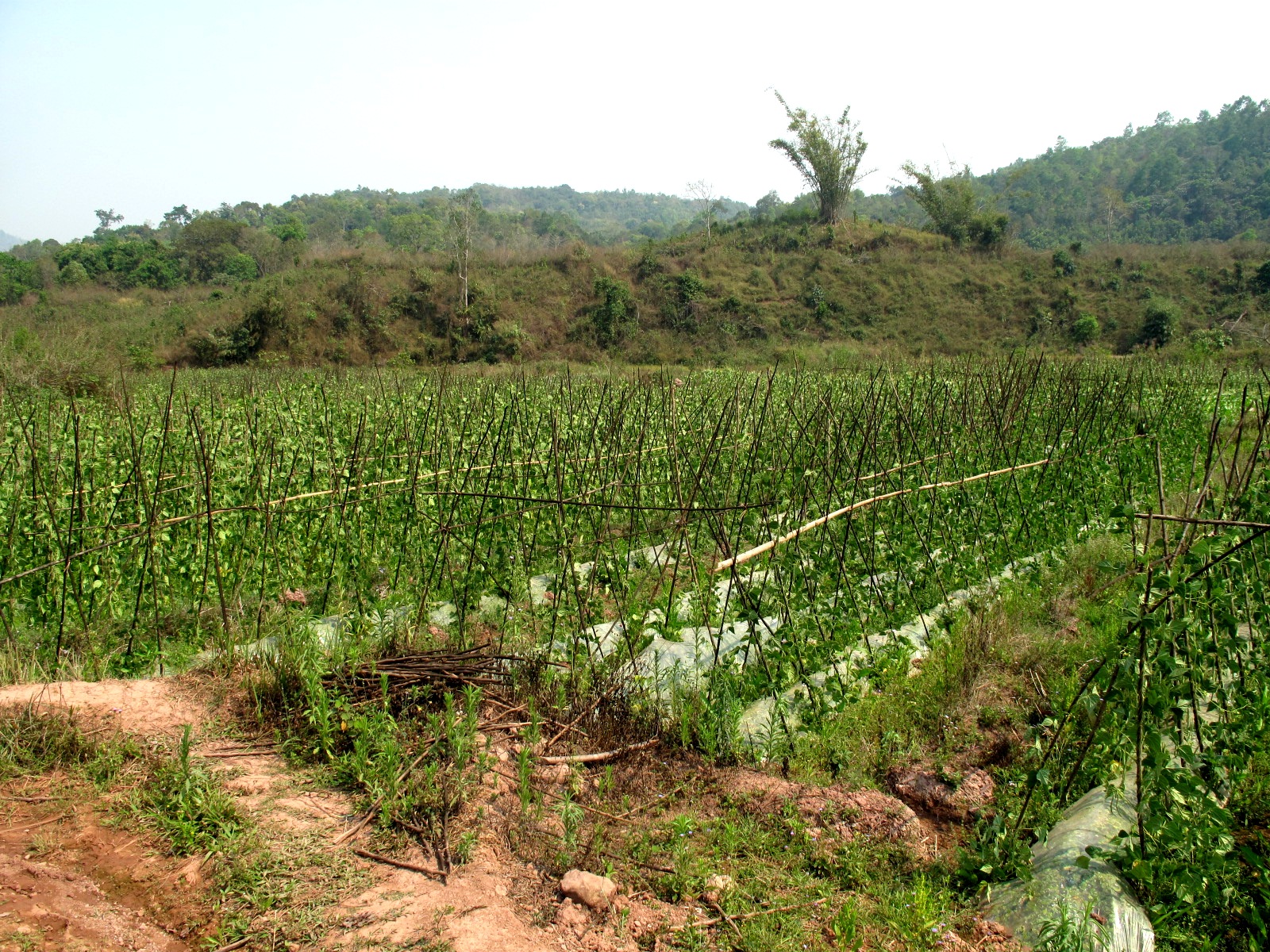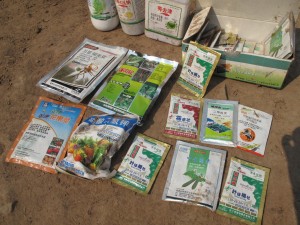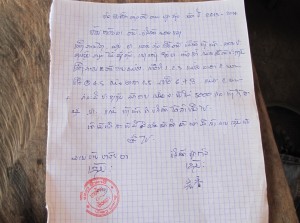倡議工作, 亞洲其他地區2014年7月04日
Foreign agricultural investments stir up discussions

李育成
李育成爲撥款管理與評審經理,主要工作是規劃、協調和監督國際項目部資金的運用,合乎國際樂施會對扶貧項目,在質量、監察、檢討與學習等方面訂下的標準。除了日常工作,他亦喜歡旅游,欣賞文化古迹和自然風光。
By Kevin Li — Programme Officer, International Programme Unit
Recently in March, we made a visit to Laos. We not only met with small farmers in the rural areas, but also attended a conference addressing the impact of foreign agricultural investments with government officials, academics and NGO representatives. We hope that in the long term the laws regulating those investments will be implemented well, so as to protect the livelihoods of the small farmers and their environment.
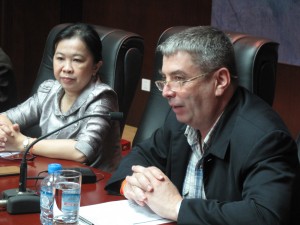
Dominique Van Der Borght, country director of Oxfam in Laos, makes the opening speech at the conference, while Dr. Silinthone Sacklokham, the deputy head of the faculty of agriculture at the National University of Laos, sits to the left.
In Laos, the government and its policies are key to the implementation of corporate social responsibility. For this reason, we supported the National University of Laos in conducting this multi-stakeholder dialogue. This was already the second year.
Last year, we released an analysis on foreign agribusiness investments and their impact on poverty in Laos. We looked at the effect that the three countries with the most investments — Vietnam, Thailand and China — have had on employment, infrastructure, technology, the environment, and poor people in the country.
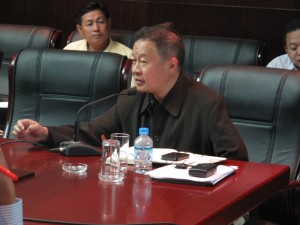
Professor Zhao Yaqiao, head of the College of Economics and Management at Yunnan Agricultural University, gives a presentation.
This year at the International Conference on Foreign Investments in the Agricultural Sector of the Lao, we not only invited officials from the key ministries regulating agricultural investments. We also invited officials from government departments in three provinces, representatives from the local branches of international non-governmental organisations, and civil society groups from neighbouring Myanmar.
They actively participated in the discussion and spoke about the top three issues surrounding foreign agriculture investments, namely the labour shortage, and the lack of regulations on contract farming, of monitoring on imported agrochemicals, and of protection on workers’ rights. The government officials agree that these are key issues that need to be addressed.
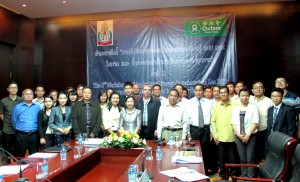
Participants pose for a photograph at the International Conference on Foreign Investments in the Agricultural Sector of Laos.
Based on our observations in Phongsaly Province, which is located near the Laos-China border, most farmers have benefited from the income generated by cooperating with foreign agriculture investors, and they have improved their farming techniques. However, due to a lack of compliance in the production contracts and a lack of transparency in pricing on agricultural produce, the rights of small farmers are not well protected. Without labelling in the Lao language on fertilisers, farmers often do not know how to properly use them. This can lead to misuse, sometimes killing the crops, creating chemical pollution, and resulting in health hazards for the farmers themselves.
The key issues are not limited to these. If you are interested, please feel free to download the report here. We are also going to publish a new report later this year. By doing research we can find out what is really going on behind the development, and develop solutions to solve the problems we mentioned above. In long run, this can benefit the small farmers. These are part of the reports on agribusiness investments:
– Understanding China’s Overseas Foreign Direct Investment: A Mapping of Chinese Law and Regulations: Follow this link.
– Agribusiness Investment in Lao PDR: Opportunities and Challenges for Poverty Reduction: Follow this link.
[one_half]
[/one_half][one_half_last]
[/one_half_last]

